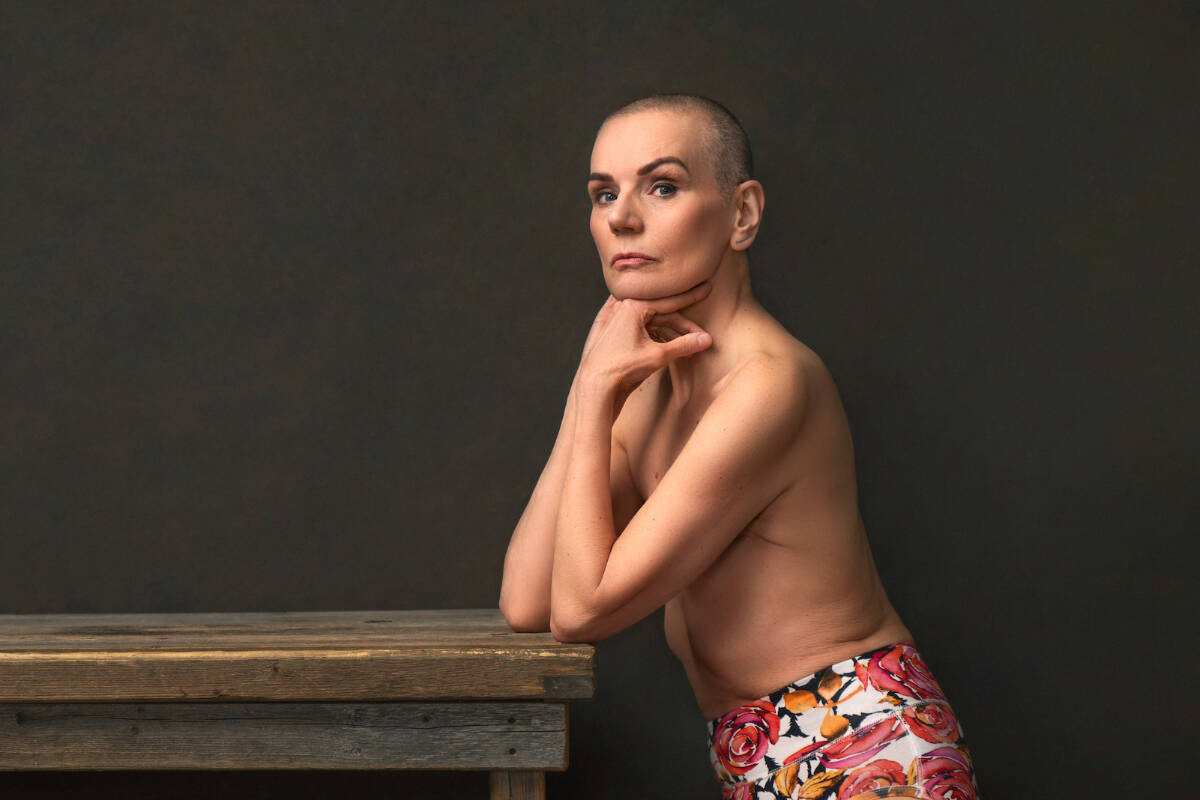A Langford woman who twice survived breast cancer is using her experience to advocate for body positivity.
Tina Martel beat breast cancer twice and made the decision to undergo a double mastectomy. While for many women, a mastectomy – or the removal of a breast – is necessary, for Martel, it was a choice.
After putting her body through the ringer with lumpectomies, chemo and radiation during her first stint with cancer, when she was diagnosed with contralateral breast cancer four years later, she really evaluated what was in her best interest.
Contralateral breast cancer is a rare form of breast cancer that develops in only 11 per cent of patients. It occurs when the patient develops cancer in both breasts.
With the onset of her diagnoses, Martel decided to go ahead with another lumpectomy, which is when a lump with cancerous cells is removed from the body.
READ MORE: 8 facts about Breast Cancer National Mammography Day
However, after months of follow-up appointments, biopsies, ultrasound and mammograms, Martel said her mental health was in decline. This was the final push she needed to seek out what it would take to have a double mastectomy.
After speaking with her doctor and doing research online she decided it was the right choice for her.
“I was not crazy about the idea of implants, I never have been,” Martel said. “I just think that putting a foreign substance into your body is probably not, ultimately a good idea.”
She was deterred from getting implants because of the common occurrence of failure or implant rejection, as well as the need for more surgeries.
Instead, she opted for an esthetic flat closure, which provides patients with a flat chest that has minimal scarring.
After her surgery, she thought about perhaps a chest tattoo or maybe prosthetics, but neither was for her.
“Either I am going to accept the fact that I’m flat, which is what I am, or why did I do all of this?” Martel said.
When looking into how to dress a flat body, Martel was appalled.
All the advice she was seeing was how to cover up flatness rather than celebrate it.
“So it’s OK for me to go flat but I have to hide it so the rest of the world is not offended by it? I just went forget it, I’m going to be really bold about this,” she said. “I’m going to show women what it looks like, I’m just gonna make a statement and whatever happens, happens.”
So she started her Instagram account called Not In The Pink which, in part, aims to raise awareness about how common breast cancer is as 1-in-8 women will develop it in their lifetime. But she also wanted to inspire women to be themselves – unapologetically.
“I thought I’m just going to be what I am – I’m a flat woman. This is OK, it’s doable and I know lots of women who are doing this,” Martel said.
Among her thousands of followers, Martel finds people who have experienced breast cancer, but also people who just want to celebrate diverse body types.
“There’s room for all of us,” Martel said. “We can be fluffy, we can be slim, we can be large-breasted, we can be flat. We can be whatever we want to be or need to be. Being held to this one notion of perfection – it’s absurd.”
As well as engaging with the community she has created through her social media, she is currently competing in the Fab over 40 contest to shine a light on beauty of all shapes and sizes.
While Martel advocates for women who decide to go flat, she said getting implants or wearing prosthetics is for some people, but urges women to have all the information before they make a decision. She also emphasizes the importance of knowing your body and participating in routine check-ups.
Both times she was diagnosed, she caught the cancer by feeling for lumps.
She worries now that for the two years that COVID-19 limited many forms of testing, women have gone undiagnosed.
She also wants people to know that while there are certain risks that can increase the chances of developing breast cancer, it can happen to anyone.
“For me, it is simply education at this point – know your body, know what it’s supposed to be doing, do your due diligence in checking and understand that this is not something that might happen,” Martel said. “This is something that is going to happen to one of your friends in your group of eight.”
ALSO READ: Centre gives breast cancer patients new outlook on life
@HLFerguson
hollie.ferguson@vicnews.com
Like us on Facebook and follow us on Twitter.

